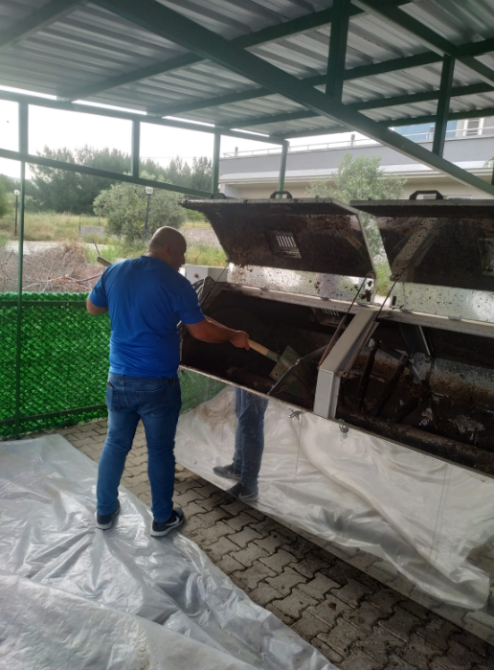Energy and Climate Change
[2] Energy and Climate Change (EC)
[2.1] Energy efficient appliances (EC.1)
The majority of DEU buildings have been strategically designed to optimize natural daylight utilization, employing extensive glass facades. Beyond the aesthetic benefits, this design approach minimizes the need for electric lighting during sunlit hours, resulting in substantial energy savings.
Dokuz Eylul University has a longstanding commitment to deploying energy-efficient appliances throughout its campuses. Even without structural changes, DEU continually updates the interior equipment. Most of our classrooms, open spaces, and staff areas are equipped with LED lighting, with ongoing replacement of older lighting systems like fluorescents. In common areas with substantial surface areas, motion-sensor lighting products are employed, which automatically detect movement and illuminate the area, thereby conserving energy and preventing unnecessary lighting use.
The university campuses are heated using central heating systems. In newly constructed buildings, cooling is accomplished through central systems, while previously acquired individual cooling systems employ energy-efficient inverter air conditioners. In recent years, all electrical appliances, including refrigerators purchased for university campuses, are selected from among energy-efficient products, with a preference for A+ rated items. The university’s IT Department maintains an inventory of approximately 11,400 computers, all of which are Energy Star certified.
According to the data of the continuing “Smart University Project” carried out within the scope of our University’s Guided Scientific Research project, all computers used in our university campuses are Energy Star certified and energy-saving equipment. In addition, LED lamps have a share of 43% in Tınaztepe Campus and 15 July Health and Art Campus, and all changes over time are in favor of energy-saving devices. The 4710 air-conditioned units used are inverter style and are energy efficient. As a result, energy-saving products used across DEU campuses contribute to more than 75% of the total energy consumption.
Data of the Smart University Project of DEU
| Campus | Number of Computers
(All Energy Star Certified) |
Number of Air Conditioners | Number of Fluorescents | Number of LED Lamps |
| Tınaztepe Campus | 1833 | 1905 | 4118 | 3060 |
| 15 Temmuz Health and Art Campus | 2740 | 5457 | 6964 | 5279 |
| Total (% energy saving devices) | 4573(100 %) | 7362 (100 %) | 11082 (57%) | 8339 (43%) |
 |
 |
 |
| Use of daylight in different units of DEU Campuses |
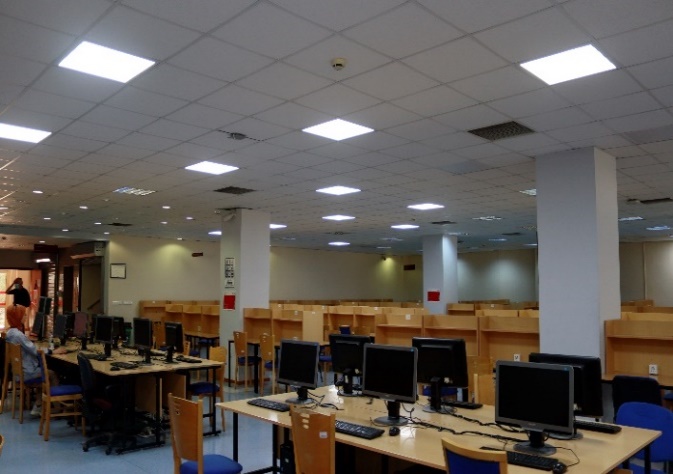 |
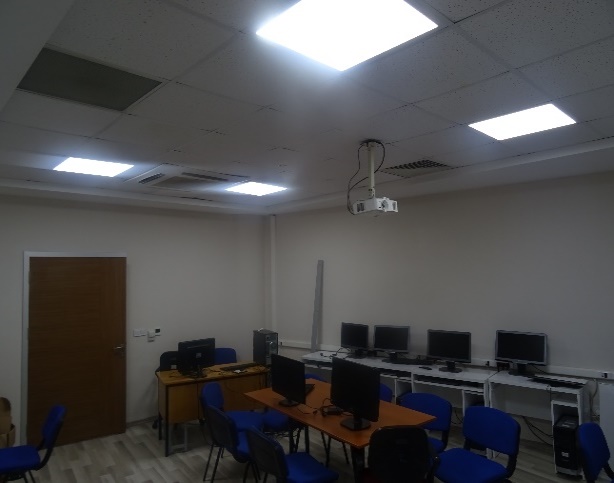 |
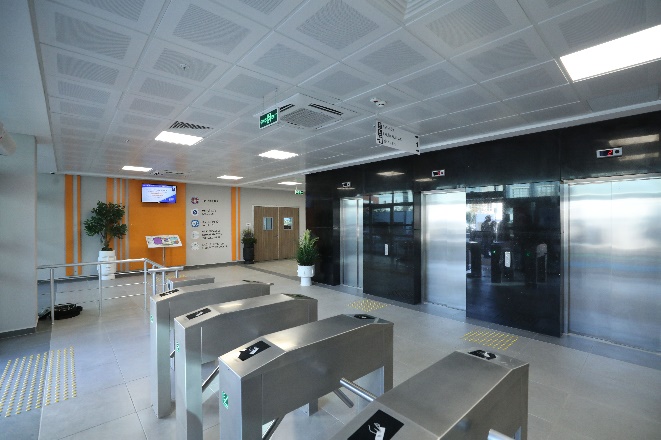 |
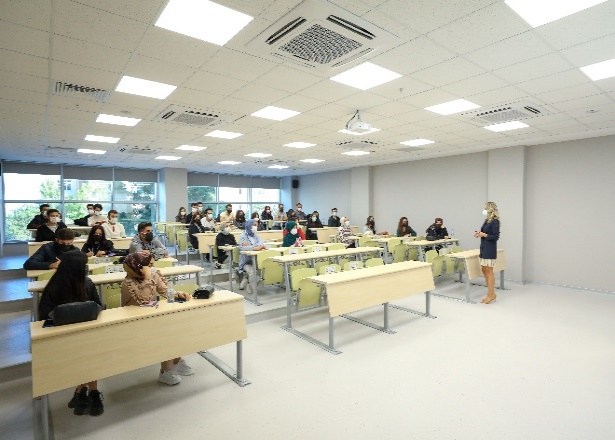 |
 |
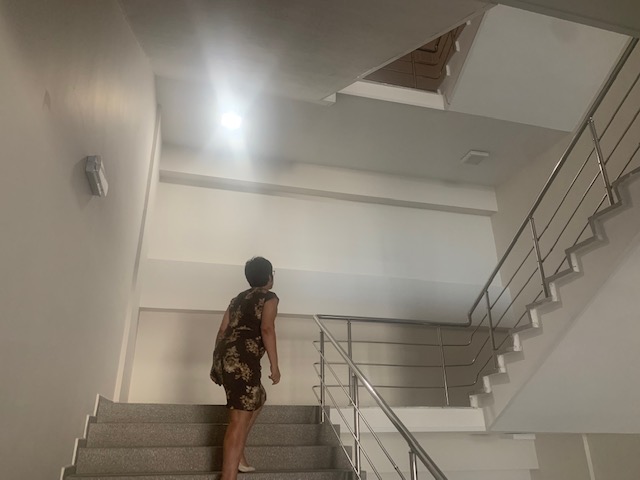 |
| Use of LED lights in different units and photocell lighting products | |
[2.3] Smart building implementation
The area of smart buildings in DEU has reached to 173.642 m2 in 2022. The ratio of the smart buildings in the total can be calculated as follows:
Formula: ((2.2 /1.7)*100%)
[2.2] Smart building floor area : 173.642 m2 [1.7] Total ground floor areas : 827.345 m2Smart building implementation : (173.642 /827.345) * 100 = 21%
| No. | Name | Place | automation | safety | energy | water | Indoor environment | lighting | Building Area (m²) | ||||||||||||
| B1 | B2 | S1 | S2 | S3 | S4 | E1 | E2 | A1 | A2 | I1 | I2 | I3 | I4 | L1 | L2 | L3 | L4 | ||||
| 1 | Dokuz Eylul University; DEPARK Technology Development Zone in Tınaztepe Campus (TGB-1) | Izmir, Turkey | x | x | x | x | x | x | x | x | x | x | 17413 | ||||||||
| 2 | Dokuz Eylul Univeristy; DEPARK Technology Development Zone in 15 Temmuz Campus (TGB-2) | Izmir, Turkey | x | x | x | x | x | x | x | x | x | x | 10487 | ||||||||
| 3 | Dokuz Eylul Univeristy; New Hospital Management Building | Izmir, Turkey | x | x | x | x | x | x | x | x | x | x | 23335 | ||||||||
| 4 | Dokuz Eylul Univeristy; İzmir Bio Genom Institute (İBG) | Izmir, Turkey | x | x | x | x | x | x | x | x | x | x | 22250 | ||||||||
| 5 | Dokuz Eylul Univeristy; Faculty of Law | Izmir, Turkey | x | x | x | x | x | x | x | x | x | x | 26000 | ||||||||
| 6 | Dokuz Eylul Univeristy; Central Laboratory Building | Izmir, Turkey | x | x | x | x | x | x | x | x | x | x | 4270 | ||||||||
| 7 | 15 Temmuz Health and Art Campus Common Classrooms Building | Izmir, Turkey | X | X | X | X | X | X | X | X | X | X | 5742 | ||||||||
| 8 | Foreign Languages Vocational School Buıildings | Izmir, Turkey | X | X | X | X | X | X | X | X | X | X | 19430 | ||||||||
| 9 | Faculty of Medicine, Basic Sciences and Dean’s Building | Izmir, Turkey | X | X | X | X | X | X | X | X | X | X | 21815 | ||||||||
| 10 | Faculty of Fine Arts and State Conservatory Building | Izmir, Turkey | X | X | X | X | X | X | X | X | X | X | 22900 | ||||||||
| Total | 173642 | ||||||||||||||||||||
──────── Please compile one row for each building (or homogeneous part of it) by ticking with a “X” for each requirement ────────
*Min. at least five requirements for each building
| Building 1 | Building 2 | ||
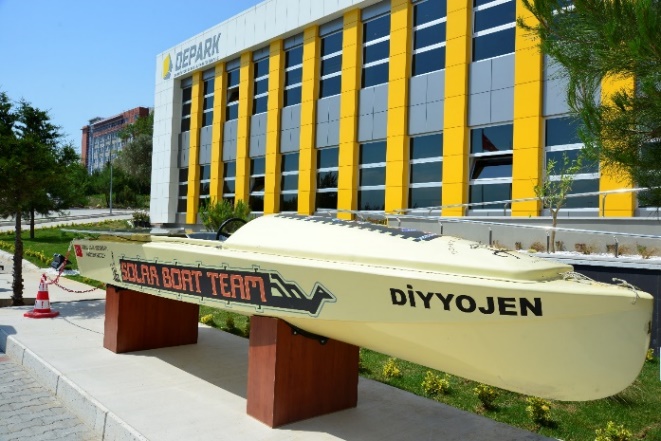 |
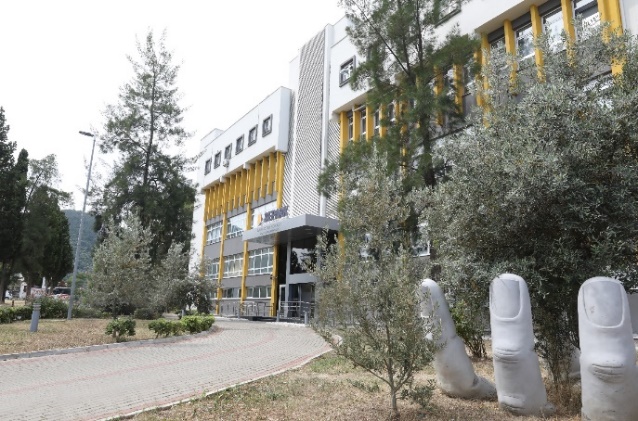 |
||
| Building 3 | Building 4 | ||
 |
 |
||
| Building 5 | Building 6 | ||
 |
 |
||
| Building 7 | Building 8 | ||
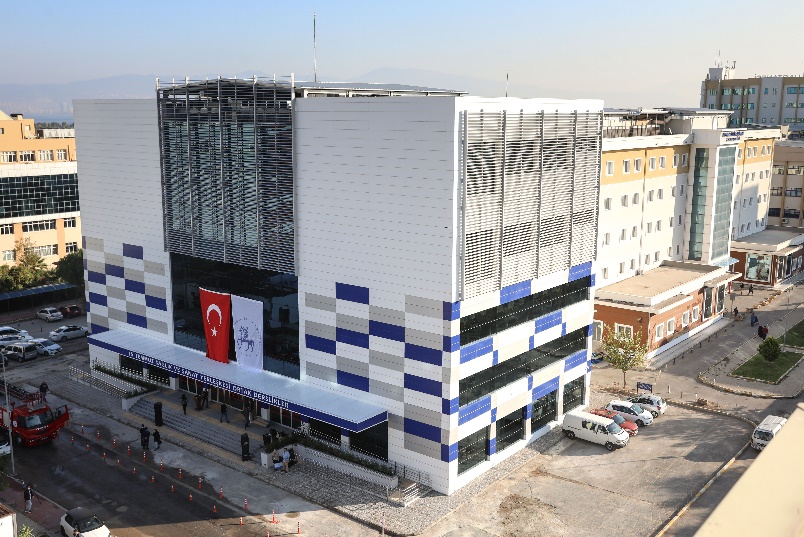 |
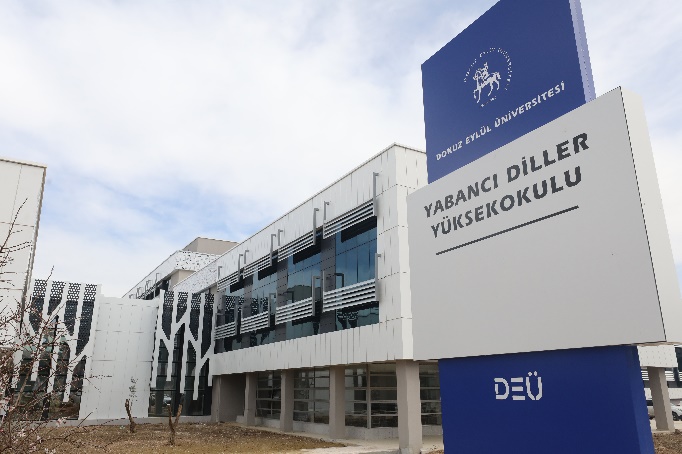 |
||
| Building 9 | Building 10 | ||
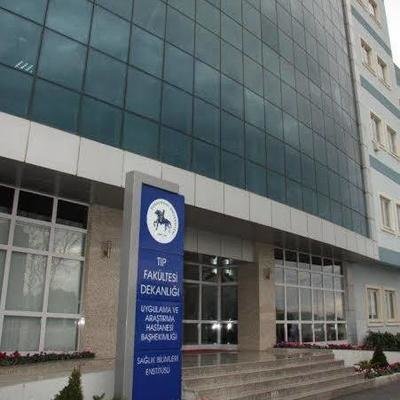 |
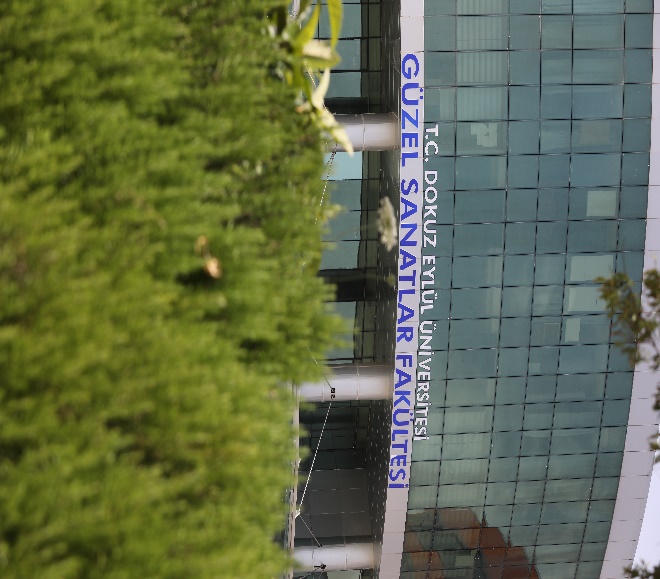 |
||
[2.5] Renewable energy sources and their capacity (in kilowatt-hour)
The Solar Energy Project at our university was initiated in March 2022, marked by the commencement of installations. Dokuz Eylul University has entered into a 25-year lease agreement with a private company for its campus areas. This private company has, without cost to the university, developed solar power plants with a combined installed capacity of 15 MW. Over the course of 25 years, the company will operate these solar power plants and eventually transfer ownership to the university. Throughout this duration, the university will be invoiced for the electrical energy generated by the solar power systems at a 10% discount, and any surplus production will be fed back into the grid.
As part of the current project, designed to fulfill Dokuz Eylul University Campuses’ energy needs, a total installed capacity of 15,205 kWe has been achieved across seven campuses, which include the 15 Temmuz Health and Art Campus, Marine Sciences and Technology Institute – İnciraltı Campus, Dokuzçeşmeler (Faculty of Economics and Administrative Sciences) campus, Faculty of Education Campus, Tınaztepe Campus, Buca Student Dormitory campus, and Torbalı Campus. These installations are currently in progress, and the project is nearing completion.
Among the campuses where installations were planned, the solar power plants at the Economics and Administrative Sciences Campus, Faculty of Education Campus, Marine Sciences and Technology Institute Campus, and Tınaztepe Campus have been completed, with the final acceptance of these facilities already conducted. The Solar Power Plant situated at the 15 Temmuz Health and Art Campus is being developed in two stages, with the first stage nearing completion and ongoing installation work for the second stage.
There are also plans for establishing a Solar Power Plant with an installed capacity of 160kWe at the Buca Dormitory, although final details are pending as the project-planning phase is still in progress.
In order to address the energy demands of Dokuz Eylul University Campuses, installations totaling 7500 kWe have been established. Taking into account the geographical coordinates and solar radiation data for the city center of Izmir, where our university campuses are situated, the solar energy system with a capacity of 17.237 MW is expected to generate an average annual energy output of approximately 29.571.357.51 kWh. This computation was conducted utilizing the PVGIS (Photovoltaic Geographical Information System) software. Considering the panel installations and production at the university, the project has been completed at a rate of 87%, and only the 1st Stage installations of the İnciraltı 15 Temmuz Health and Art campus have not been completed. In this case, once the panels come into full capacity production, solar power generation will cover 83% of the annual energy consumed by the university, including all units.
The solar energy system, as presented in the table, has contributed to an electricity generation of 6.905.453 kWh when assessing the data for the initial eight months of 2023. Furthermore, it was determined that the University utilized 1.781.291 kWh of geothermal energy at the 15 Temmuz Health and Art Campus.
 |
 |
 |
 |
 |
 |
Solar energy panels in 15 Temmuz Health and Art Campus
 |
| Solar energy pannels in Education Faculty Campus of DEU |
 |
| Solar energy pannels in Institute of Marine Sciences and Technology of DEU |
 |
| Solar energy pannels in Torbalı Vocational School of DEU |

|
| Solar energy pannels in Dokuzçeşmeler Campus of DEU |
 |
 |
 |
| Solar energy pannels in Tınaztepe Campus of DEU |
 |
 |
| Geothermal Exchangers in 15 Temmuz Health and Art Campus | |
[2.6] Electricity usage per year (in kilowatt hour)
The electricity consumption in 2022 amounted to 22.253.049 kWh. This total encompasses the electricity consumption across DEU Campuses for 2022, which includes the combined electrical usage within administrative and academic units, as well as the SKS (Health Culture Sports) Department. The latter department manages activities like nutrition services (canteens, cafeterias), part-time student employment, social facilities, social and cultural events, and student dormitories within the university. Electricity is utilized for a variety of purposes, including lighting, cooling, heating, and laboratory equipment.
It’s worth noting that the energy consumption of 24.029.611 kWh used in the University’s Practice and Research Hospital, which served 47.880 inpatients and 1.422.325 outpatients in 2022, is not considered part of the electricity used by the university’s staff.
| ELECTRICITY CONSUMPTION IN 2022 | |||
| UNIT | CONSUMPTION (kWh) | POPULATION SERVED (capita) | UNIT ENERGY CONSUMPTION
kWh/person |
| Total of Administrative and Academic Units including Health, Culture and Sports (SKS) Department’s Units | 22.253.049 | 75.935 | 293,05 |
| Application and Research Hospital | 24.029.611 | 47.880 inpatients
1.422.296 outpatients |
16,34 |
[2.8] The ratio of renewable energy production divided by total energy usage per year (EC.5)
The solar energy systems at Dokuz Eylul University commenced partial operation in January 2023, marking an 87% completion of the project. During the year 2022, solar power systems did not contribute to energy production. Presently, the production and consumption values are continuously monitored at the campus locations where these panels are installed, and a comparison has been made using data from the first eight months of 2023. Similarly, the geothermal energy data pertains to the year 2023. In this comparison, hospital data were considered separately in the institutional assessment, as they do not represent the campus population, as previously mentioned in section 2.7.
As a result, out of the total energy consumption of 32.872.714.6 kWh at the university, 7.153.681 kWh were derived from renewable energy sources, namely geothermal and solar energy. This accounts for approximately 21,7% of the overall energy consumption.

|
 |
 |
|
 |
Views from Solar Energy Project in various campuses of DEU
Energy use in DEU campuses
| (m3) | kWh | |
| Natural Gas Use | 998.089 | 10.619.667 |
| Electricity Use in DEU Units | 22.253.049 | |
| Geothermal Energy –Renewable Energy (Produced) | 29.871 | 248.228 |
| Solar Energy – Renewable Energy (Produced) | 6.905.453 |
[2.9] Elements of green building implementation as reflected in all construction and renovation policies (EC.6)
The most prominent green building practice on DEU campuses involves a comprehensive focus on maximizing natural daylight usage. Across classrooms, auditoriums, entrances, communal spaces, and offices, artificial lighting is only activated, on average, after 17:30.
The university extensively employs energy-efficient LED lighting and lighting systems equipped with motion sensors in a majority of its buildings. This approach effectively leads to ongoing reductions in electricity consumption
| Campus | Number of Computers
(All Energy Star Certified) |
Number of Air Conditioners | Number of LED Lamps |
| Tınaztepe Campus | 981 | 1256 | 3060 |
| 15 Temmuz Health and Art Campus | 1327 | 3454 | 5279 |
| Total (% energy saving devices) | 2308 (100 %) | 4710 (100 %) | 8339 (43%) |
As indicated in the data presented in the table above, the proportion of LED lights within the total lighting fixtures is currently at 43%, and this percentage is steadily rising. Furthermore, all computers are certified with the Energy Star label, and the air conditioning systems are of the inverter type, with the exception of the central heating and cooling systems
Dokuz Eylul University is dedicated to water conservation and has made choices accordingly. Across our campuses, we have implemented water-saving solutions such as optical sensor faucets and urinals, dual-flush toilets, and push-to-fill water fountains. Photocell-operated taps are installed in restrooms in nearly all campus buildings, effectively curbing water wastage and contributing to substantial water preservation across the university. In addition, the adoption of dual-flush reservoir systems in restrooms has resulted in substantial water usage reduction. To date, approximately 55% of the initially installed appliances have been replaced with water-efficient models.
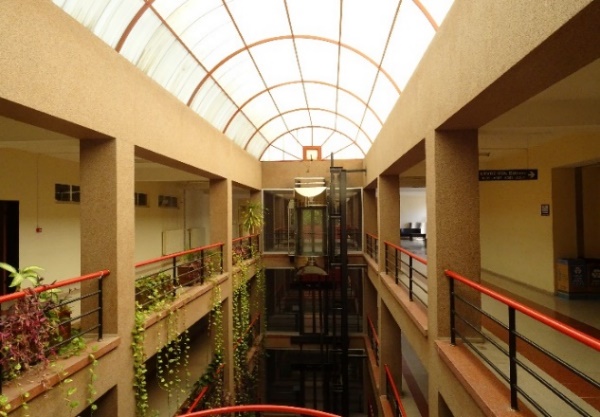 |
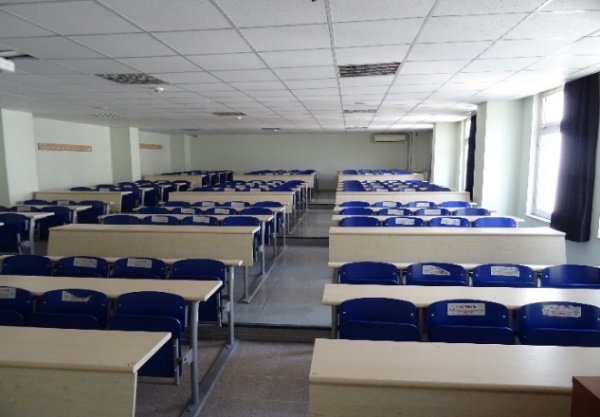 |
| Use of daylight in Faculty of Engineering | |
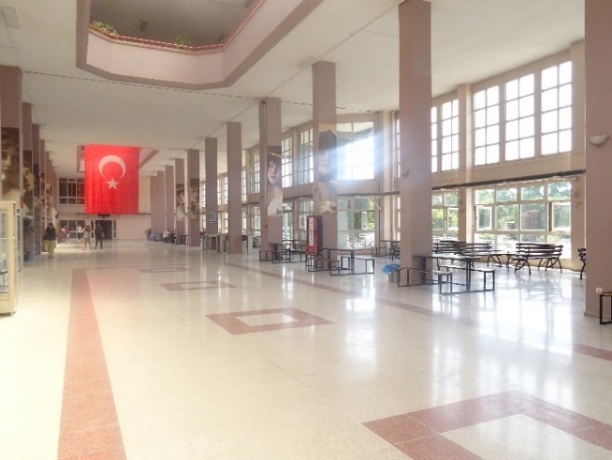 |
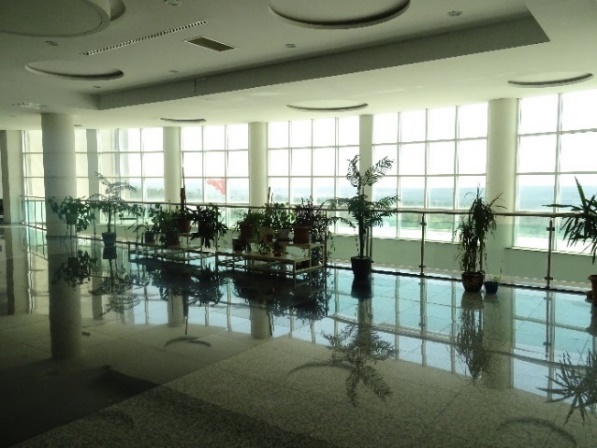 |
| Use of daylight in Faculty of Science | Use of daylight in Faculty of Tourism |
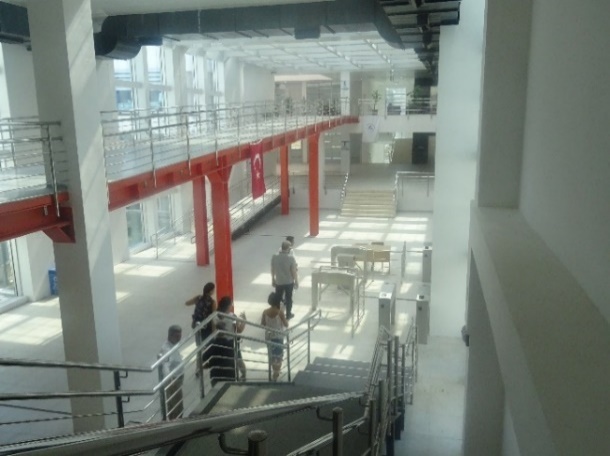 |
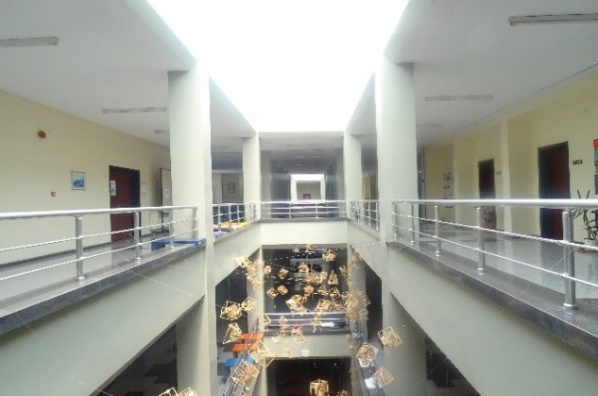 |
| Use of daylight in School of Foreign Languages | Use of daylight in Faculty of Architecture |
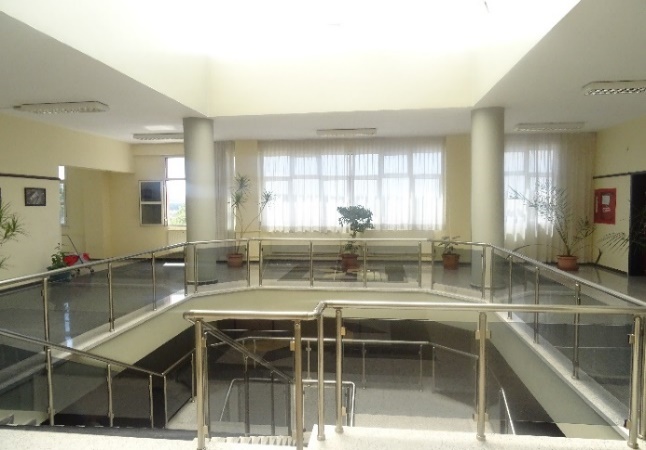 |
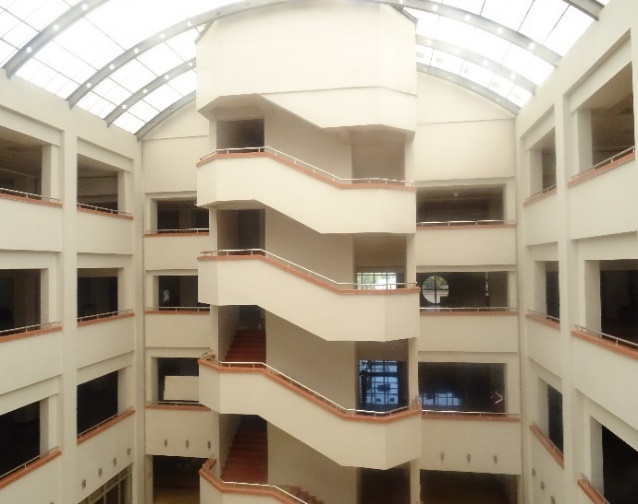 |
| Use of daylight in Faculty of Management | Use of daylight in Faculty of Maritime |
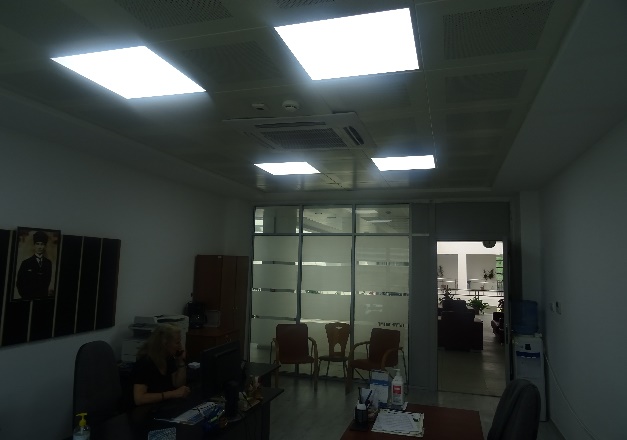 |
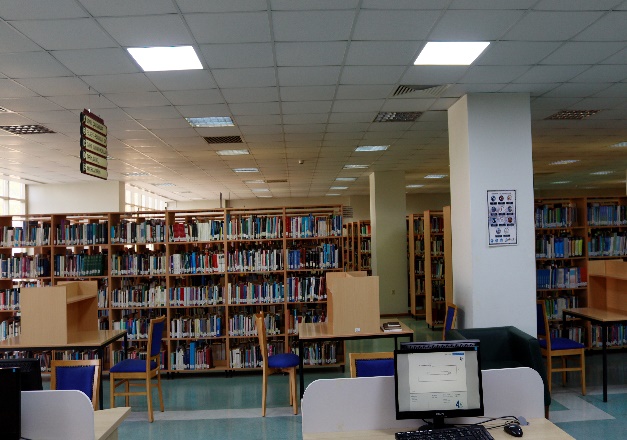 |
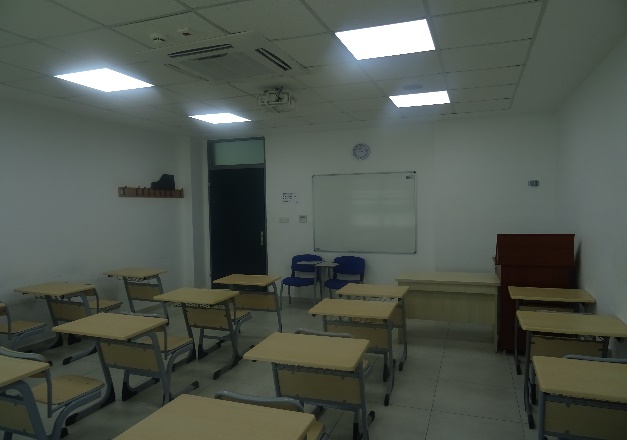 |
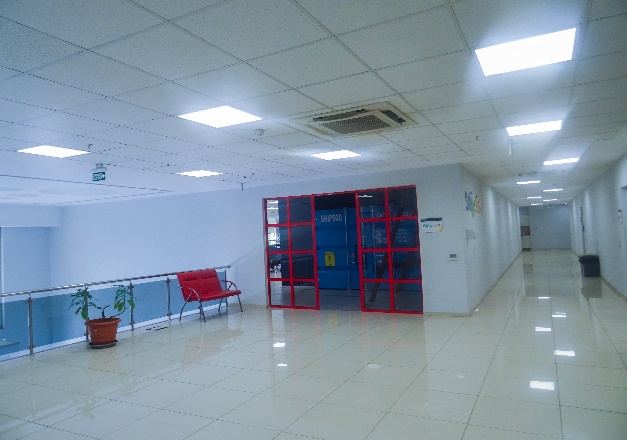 |
| Use of energy saving LED lights in different units of DEU Campuses | |
 |
 |
 |
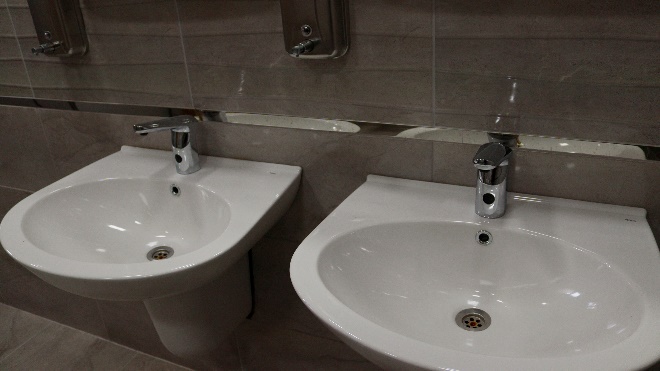 |
| Use of photocell taps in various DEU Campuses | |
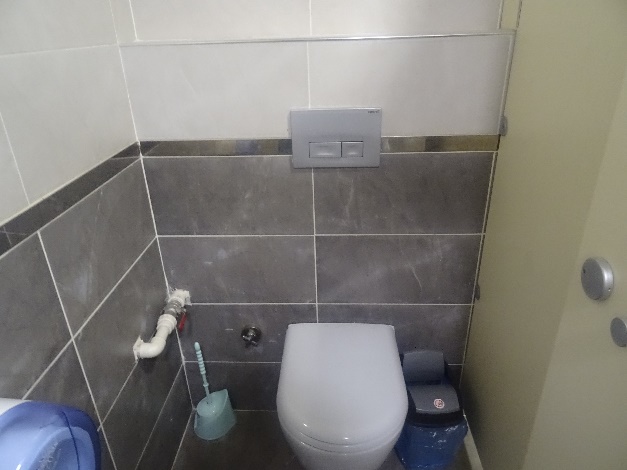
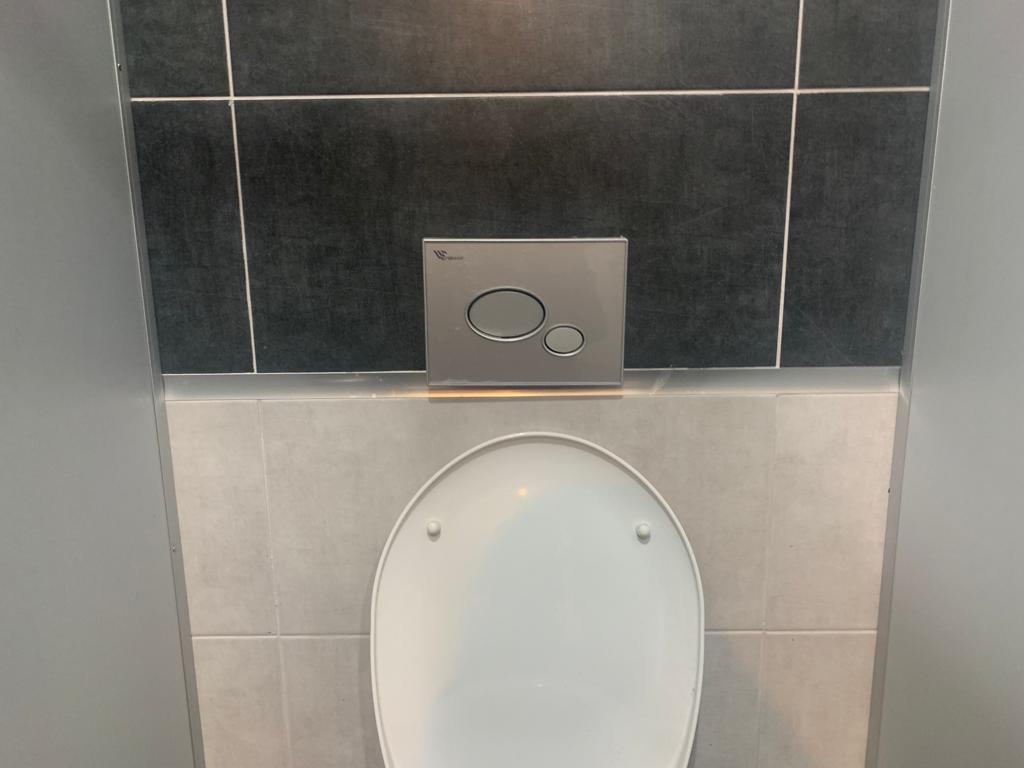
Use of double-stage reservoir systems in various DEU Campuses
[2.10] Greenhouse gas emission reduction program (EC.7)
DEU greenhouse gas emission reduction programs aim to reduce all three scopes of emissions as described below:
| Scope | Emmission Data | DEU Actions |
| 1 | Stationary Combustion |
-While preparing the Energy Survey report for the eight campuses of Dokuz Eylül University, the contracted company conducted a thorough examination of the automation systems in these campuses over an eight-week period. This assessment was evenly distributed, with four weeks dedicated to both the summer and winter seasons. During this assessment, they conducted thermal and energy analyzer measurements on the main distribution panels, and performed thermal and flow rate measurements on the heating and cooling pumps. Moreover, the assessment included exterior thermal measurements, mechanical installation thermal measurements, U coefficient measurements on walls and glass surfaces, flue gas analysis, thermal measurements for VRF systems in buildings, flow measurements for buildings with ventilation systems, Lux measurements in interior environments, and interior measurements. Ambient CO2 measurements were also conducted as part of this comprehensive evaluation. Additionally, the process of obtaining an Energy Performance Certificate for our buildings with existing construction permits but lacking an Energy Identity Certificate is ongoing as part of this project.” |
| Mobile consumption | To regulate mobile combustion within university campuses, we employ a digital vehicle tracking system for all university-owned vehicles used on the campuses. This system facilitates the ongoing monitoring of vehicle maintenance and the tracking of their routine fuel consumption. As a result, it allows us to effectively manage and control energy consumption associated with mobile combustion. | |
| Process Emissions | DEU does not have process emissions | |
| Fugitive emmissions | Dokuz Eylül University (DEU) implements natural ventilation in indoor spaces, with air conditioning usage limited to periods when daytime temperatures exceed 28°C. The university administration consistently conducts maintenance on the natural gas installation system and air conditioning, effectively preventing any potential fugitive emissions. Furthermore, as part of energy-saving measures, we proactively identify and address any leaks in doors and windows to ensure proper sealing. |
| Scope | Emmission Data | DEU Actions |
| 2 | Purchased Electricty | When the consumption values for the Solar Energy Project at our university in 2022 are examined, it is observed that the university, consumes a total of to 35.883.945, kWh of electricity annually through 23 subscriptions. Taking into account the panel installations and production at the university, the project has been completed to 87%, with only the Phase 1 installations of the Inciraltı 15 July Health and Art Campus remaining unfinished. In this situation, when the panels reach full production capacity, the electricity generated from the Solar Energy System will cover 83% of the university’s annual energy consumption, including all units. |
| Scope | Emmission Data | DEU Actions |
| Purchased Waste | Dokuz Eylül University’s water harvesting program is set to boost the quantity of recycled water available on our campus. Additionally, the utilization of motion-activated faucets has not only decreased water usage but also lowered our expenditure on water. | |
| Commuting | Public transportation services are accessible from various city locations to reach our campuses. An annual parking fee is enforced for individuals who wish to park their vehicles on campus grounds. Moreover, designated hitchhiking areas are efficiently serving both students and faculty members. Furthermore, electric scooters are provided within the campuses to discourage the use of motorized vehicles. | |
| Air Travel | DEU pays only one author’s flight to the international conferences held abroad per oral presentation. For national conferences, only bus travels are paid. | |
| Waste | The university has established dual waste collection systems on all campuses for separate collection. There are Zero Waste Certificates for 15 campuses in our university. Recyclable waste is collected from our campuses by authorized and contracted recycling companies, and the amounts of waste are documented. The waste quantities are recorded in the Integrated Environmental Information System by unit managers on a monthly basis. As a result of these records, approximately 1300 tons of recyclable waste have been collected and reintroduced into the economy each year between 2018 and 2022, showing a yearly increase. According to the reported data, in 2022, there was a 31.5% increase in waste recycling compared to 2019. |

In-Campus Exchangable Battery Scooter Park Area |
  |
||
 |
 |
|
 |
 |
|
| Solar energy project in DEU Campuses | ||
|
||||||
| Compositing facilities in DEU | ||||||
|
||||||
| Separate collection of recyclables in DEU Campuses | ||||||
[2.11] Total carbon footprint (CO2 emission in the last 12 months, in metric tons)
The calculations mentioned below are based on the following parameters: there are 8 shuttles operating on the campuses, each shuttle carries an average of 55 passengers, and each shuttle makes an average of 11 trips. During each trip, the shuttles travel approximately 4 kilometers within the campus. Furthermore, there is an average of 1400 cars and 300 motorcycles on the campus, with both cars and motorcycles covering an approximate travel distance of 2 kilometers.
Using this data, the total annual CO2 emissions have been computed as 19.057 metric tons, as determined by the calculation formula outlined in Appendix 3. The total carbon footprint divided by total campuses population is as follows:
Total carbon fooprint/ca = Total carbon footprint / Campuses population
= 19057 metric tonnes /75935
= 0,25 metric tons.
| TOTAL CARBON FOOTPRINT | |
| Yearly Electric Consumption (kWh) | 22.253.050 |
| Open space area (m2) | 5.601.798 – 160.304 |
| 5.441.494 | |
| The CO2 emmission from electricity | (Consumption/1.000)*0.84 |
| (22.253.050/1.000)*0,84 | |
| 18.692 metric ton | |
| Transportation per year (Shuttle) | (8*88*4)*240/100*0,01 |
| 67,58 metric ton | |
| Transportation per year (Car) | (1400*2*2*240)/100*0,02 |
| 268,8 metric ton | |
| Transportation per year (Motorcycle) | (300*2*2*240)/100*0,01 |
| 28.8 metric ton | |
| Total emmission per year | Total emmission from electricity usage + transportation (bus, car, motorcycle) |
| 18.692 + 67,58 + 268,8 + 28,8 | |
| 19.057 metric ton | |
[2.13] Number of innovative program(s) in Energy and Climate Change (EC.9)
Dokuz Eylul University has entered into an agreement with a private sector firm for the installation of Solar Energy Panel Systems, aimed at harnessing renewable energy across the university’s campuses. The panel construction is nearing its final stages, with the surplus energy produced set to be supplied to the local electricity distribution company. This endeavor will substantially diminish our university’s carbon footprint. The solar energy system, as presented in part 2.5, has contributed to an electricity generation of 6.905.453 kWh for the initial eight months of 2023. This is roughly equivalent to a reduction of 4,280 tons of CO2 emissions.
As part of the “National Afforestation Day” initiative, a total of 1111 saplings were collectively planted on November 11, 2022, at 11:11 AM across all campuses, including academic and administrative units, at Dokuz Eylül University.
Concerted efforts are underway to enhance energy efficiency across DEU Campuses. As part of the initiative guided by the Regulation on Enhancing Energy and Resource Efficiency, energy managers have been designated at our eight participating campuses, and their work has commenced. Within the framework of these endeavors, a comprehensive evaluation of electricity, natural gas, and geothermal consumption patterns is being conducted, yielding recommendations for energy-saving measures. Additionally, project proposals geared toward boosting efficiency are being formulated by assessing building structures and consumption data. This includes scrutinizing cooling systems, mechanical installations, ventilation systems, electrical infrastructure, lighting, electric motors, architectural components (insulation, etc.), and any existing automation systems. Thermal imaging is being employed to inspect building exteriors, facilitated through a partnership with a contracted company. Summer and winter measurements have already been completed, and the report has been presented.
Dokuz Eylul University (DEU) has been honored with the ‘Inspiring Public Management Project Awards’ presented by the Ankara Branch of the Turkish Quality Association. This recognition aligns with the Association’s mission to promote a culture of excellence in various sectors and organizations throughout Turkey. DEU received this accolade in the ‘University’ category for its ‘İKLİM-DE’ project, which is centered on the pursuit of a sustainable green campus transformation. The university’s application, submitted in November 2022, was successful.
Under the leadership of Professor Dr. Sevinç Özkul, the project’s objectives were focused on enhancing awareness among DEU employees, faculty, and students. It entailed conducting a pilot study that involved measuring energy efficiency and carbon dioxide emissions in faculty buildings, acquiring energy identity certificates, expanding the content of undergraduate courses, and developing a graduate curriculum in the realm of climate change research.”
 |
| Solar energy pannels from DEU Research Hospital |
  |
| Solar energy pannels from Education Faculty Solar energy pannels from Tınaztepe Campus |
 |
 |
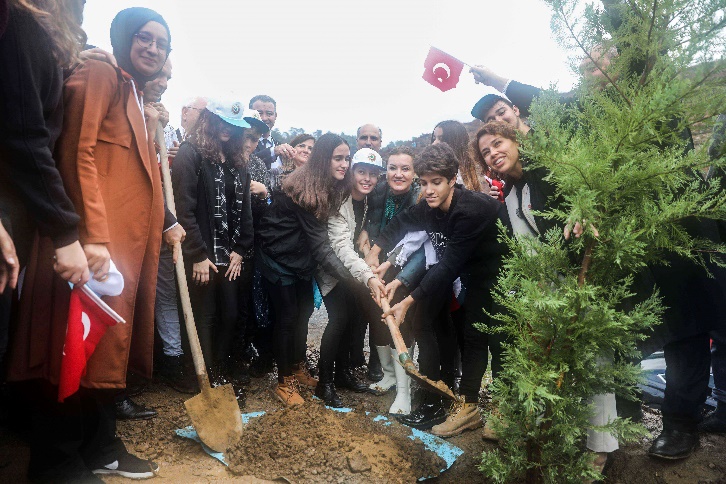 |
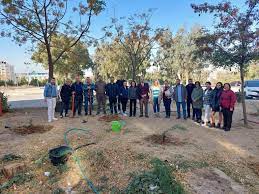 |
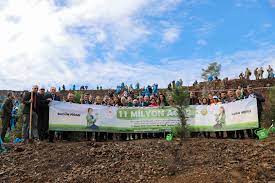 |
|
Views from National Afforestation Day in DEU
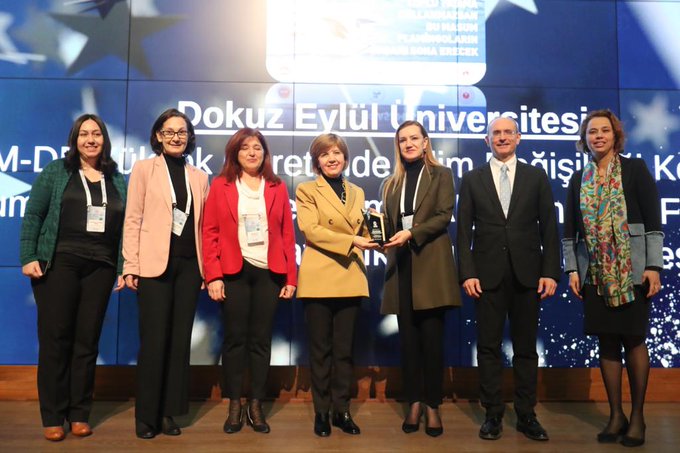
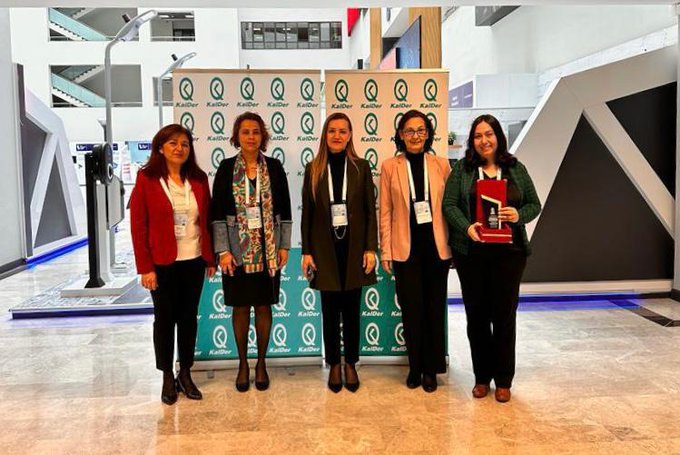
Views from ‘Inspiring Public Management Project Awards’
[2.14] Impactful university program(s) on climate change (EC.10)
Dokuz Eylul University offers graduate programs that specifically address the issue of climate change. These programs fall under the purview of the Institute of Natural and Applied Sciences at DEU. Among these programs, one of the most prominent options is the “MSc. Degree and Integrated Ph.D Degree in Energy” offered within the Mechanical Engineering Program. Within this program, there are elective courses focused on renewable energy sources, which have a direct bearing on combating climate change.
Another graduate program with a direct connection to climate change is the Geothermal Energy Department, which is designed to foster expertise in the efficient utilization of geothermal energy, a renewable energy source. This program aims to equip individuals with the skills to develop solutions, oversee processes, and coordinate efforts in both theoretical and practical aspects of geothermal energy.
Additionally, the Environmental Earth Sciences Department, though indirectly related to climate change, is a multidisciplinary program that addresses earth sciences engineering and environmental issues. This program is dedicated to educating individuals from diverse scientific backgrounds, including engineers, architects, urban and regional planners, and natural scientists. The Master’s and doctoral programs in Environmental Engineering also incorporate courses covering topics such as environmental pollution, resource conservation, and renewable energy. Furthermore, various departments within DEU offer courses related to the overarching concept of “Climate Change.”
Climate change has been the subject of graduate studies at Dokuz Eylul University. There are 5 postgraduate theses finished related to climate change between 2021-2023.

Courses in the graduate program of M.Sc. in Energy and Integrated Ph.D in Energy

Courses in the graduate program of M.Sc. in Geothermal Energy
Courses in various DEU Units consisting of the concept “Climate Change”
| Institute /Faculty | Unit | Course Name | Course Code |
| Graduate School of Natural and Applied Sciences | Graduate School of Natural and Applied Sciences | Climate Change Policy | PLN 5101 |
| Faculty of Science | Faculty of Science | Biological Impacts of Climate Change | FPE 0049 |
| Social Sciences Institute | Disaster Administration Doctorate Degree | Climate Change and Disaster Administration | AFY 6024 |
| Social Sciences Institute | Disaster Administration Master’s Degree | Climate Changes and Meteorologic Disasters | AFY 5017 |
| Institute of Educational Sciences | Environmental Education MSc. Degree without Thesis | The Effects of Climatic Properties on The Environment and Human Life | ÇEP 5500 |
| Institute of Educational Sciences | Environmental Education MSc. Degree | The Effects of Climatic Properties on The Environment and Human Life | ÇEP 5004 |
| Social Sciences Institute | Maritime Business Administration Master’s Degree | Climate Change and Maritime Transportation Strategies | DDD 6010 |
| Social Sciences Institute | Public Administration Doctorate Degree | Climate Change and Strategic Approaches | KMY 6084 |
| Social Sciences Institute | Tourism Management Master’s Degree | Tourism and Climate Change | TUİ 5106 |
| Faculty of Management | Faculty of Management | Climate Change and Business | IBS 4161 |
| Faculty of Architecture | Faculty of Architecture | Climate Change and Urban Planning | PLN4452 |
| Faculty of Engineering | Faculty of Engineering | Climate Change And Sustainable Management | ESE 2070 |
| Faculty of Engineering | Faculty of Engineering | Environmental Impacts of Climate Change | ÇEV 4097 |
| Graduate School of Natural and Applied Sciences | Graduate School of Natural and Applied Sciences | Palaeoclimatic changes of the Cenozoic time and Palaeovegetation in Turkey | DJJ 5053 |
Current Graduate Theses related to Climate Change between 2021-2023
| Name of the Thesis | Academic Degree | Supervisor | Author |
| Water Management Under Climate Change And Its Effects On Reservoir Of Large Dams And Spillway Design | Ph.D. | PROF.DR. Sevinç ÖZKUL | Sayed Amir Alawi |
| Adaptation Strategies In Coastal Cities For The Use Of Urban Coastal Areas Against Climate Change Induced Risk Of Sea Level Rise: The Case Of Izmir | Ph.D. | Prof.Dr. Gökçeçiçek SAVAŞIR | Çağla Ercanlı |
| Modeling Of Water Erosion Under Climate And Land Cover Change Scenarios In Tahtali Drinking Water
Reservoir Catchment |
M.Sc. | Assoc.Prof.Dr. Ali GÜL | Özden Öncü |
| Life Cycle Assessment of a Cement Plant in Turkey | M.Sc. | Prof.Dr. Abdurrahman BAyram | Cevat Burak Kaygın |
| Analysis of Climate Change Effects on Urban Drainage in Izmir | Ph.D. | Prof.Dr. Okan Fıstıkoğlu | Khaled S.H. Alramlawi |





